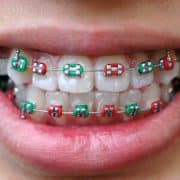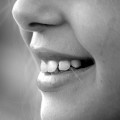Teenagers and TMJ | Truths and Myths 2020 | SUPER FACTS
Last Updated on January 25, 2021 by Gio Greenard
Teenagers and TMJ. If you are a parent to a teenager, you probably often feel it is like pulling teeth (literally) to get information out of them. Either they have their heads stuck in their laptops or they are texting with friends or studying or playing sports….being a teen means having a very busy schedule! In this post, we’ll show tell you about teenagers and TMJ – the truths and myths. Let’s get cracking.
People also ask
- Can TMJ cause jaw to swell?
- Does malocclusion cause TMJ?
- Why does my daughter’s jaw hurt?
- Does TMJ get worse with age?
But when spring rolls around, suddenly your normally preoccupied teen is complaining of jaw pain. What is going on? What could be causing this? And why does it seem like your teen has more aches and pains in spring than at any other time of year? In this article, learn what causes TMJ, spring-time jaw pains and how you can help your teen feel better fast!
TMJ: A Common Reason for Teen Jaw Pain
A number of factors can contribute to the sudden onset of your teen’s jaw joint issues. Thanks to the American Academy of Pediatric Dentistry (AAPD), there is more effort to educate parents and the public about the prevalence of TMD, or temporomandibular joint disorder, in adolescents and teenagers.
The temporomandibular joint is actually one of the most complicated joints in the whole body. It has three parts: the temporal bone, the mandible and the disc that cushions the bone and mandible as the joint moves.
While orthodontic researchers are not yet completely clear on why TMJ seems more common in younger patients, one theory is that the teeth and jaw are still moving and shifting and this can place undue strain on the jaw joint.
When the jaw joint is distressed or disturbed, it is common to feel like the jaw joint “pops” when you open and close your mouth. The popping is caused by the joint’s inability to fit together smoothly as it does its work of talking, smiling, chewing and other movements.
There can also be other symptoms, including pain in the jaw joint area, a feeling of heat, muscle spasms, the jaw locking in the open or closed position, swelling, headaches, a grinding sensation when moving the jaw joint or tingling and pressure around the joint area.
TMJ and Females
Not only is TMJ more prevalent in younger patients, but it is also more common in females than in males. Here, there is a working theory that the estrogen receptors located in the jaw area that may impact pain perception as well as jaw joint function.
For this reason, once they enter their reproductive years, teenage girls may be especially prone to report pain, popping and other symptoms that can indicate TMJ.
But What If It Is Not TMJ?
While it is true that TMD is more common in women than men, and especially so for young women today, a feeling of pain, popping or grinding is not conclusive of TMJ disorder in and of itself.
The TMJ Association estimates that approximately 12 percent of Americans (35 million people) are currently affected by TMJ. But many more people than these also experience pain and other symptoms strongly associated with TMJ.
Because the temporomandibular joint itself is so complex, it can be quite vulnerable to dysfunction. Just biting down on something very hard can cause this joint tremendous stress. Repetitive chewing, such as chewy candies or gum, can also cause an overuse injury. Improper diet, inadequate hydration, athletic injuries, too little sleep, and other factors can also cause pain and stress in the jaw joint area.
For this reason, diagnosing actual TMJ usually requires more than just a presentation of symptoms. Your orthodontist will also need to do a physical exam of the mouth, jaw joint area and neck in order to make an accurate diagnosis.
Why Teens Have More Pain in Spring
Within the orthodontia community, certain patterns become easy to spot with time. One such pattern is the number of parents who call the family orthodontist every spring because their teenager has suddenly started complaining about jaw pain.
Maybe the teen isn’t even that worried about it, but the parent is worried. So the call is made and consultation is scheduled. However (much to the relief of parents and their wallets!) in most cases, the pain their teen is experiencing is not actually coming from the temporomandibular joint at all.
Rather, the pain is more frequently located in the jaw muscles used for chewing. The reason for this is simple: STRESS. Spring is a particularly stressful time in a young person’s life. Final exams loom and sports teams are making their big push for victory. Homecoming and that ultimate rite of passage, prom, are approaching fast. Graduation is not far behind, and with that, a move to a new grade and possibly a new school.
The Sleep Condition
Stressed-out teens may struggle to eat healthily or sleep well enough. They may chew gum or candies to burn off excess tension and at night, they may unknowingly be clenching or grinding their jaws together, which puts a tremendous amount of stress on the chewing muscles.
Then they wake up in the morning and feel jaw soreness, dry mouth, headaches and, of course, fatigue. From here, it is easy to assume the worst and plan accordingly. In nine cases out of 10, TMJ is not at the root of your teen’s jaw pain. And either way, a visit to your orthodontist can ease your worries and theirs!
Contact Beach Braces for Help
Dr. Patricia J. Panucci has had a passion for good oral health since she was a girl. After completing her education and a three-year residency at the University of Southern California, Dr. Panucci graduated with a certificate in orthodontia and a master’s degree in craniofacial biology.
Conclusion
Beach Braces was born of Dr. Panucci’s love for the laid-back California beach communities and the beautiful smiles she saw while jogging with her husband, Charlie. Beach Braces offers orthodontic care for patients of all ages. Contact Dr. Panucci’s office at 310-379-0006 or online.
- Which tip will you try first???
- Either way, let us know by leaving a comment below right now and continue the conversation. Also, link in Twitter over @DrPattiPanucci
Beach Braces Orthodontics
220 N. Aviation Blvd
Suite A
Manhattan Beach
CA 90266
Phone: (310) 379-0006
Teenagers and TMJ | Truths and Myths 2020 | SUPER FACTS

Dr Patti Panucci attended the University of Louisville School of Dentistry for four years, where she graduated with a DMD degree (May 2000) among the Top 10 in her class. Following that, she headed west to Los Angeles to complete her three-year residency at one of the top-ranked orthodontic programs in the country – the University of Southern California.
Along with her certificate in orthodontics, Dr. Panucci earned a master’s degree in craniofacial biology. During those three years, she fell in love with Southern California beach life and decided that this was where her future lay.















Leave a Reply
Want to join the discussion?Feel free to contribute!